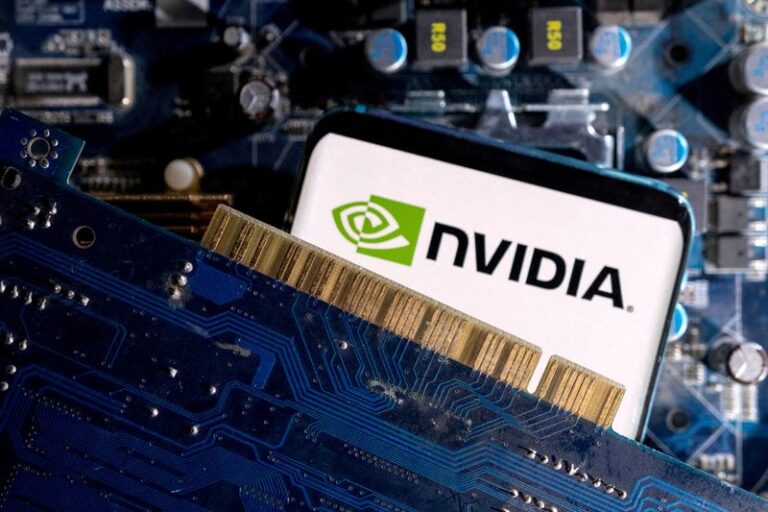By Fanny Potkin
SINGAPORE (Reuters) – Nvidia is developing a version of its new flagship AI chip for the Chinese market that complies with current U.S. export controls, three sources familiar with the matter said.
The AI chip giant unveiled its “Blackwell” chip series in March, which is set to begin mass production later this year. The new processor combines two pieces of silicon the same size as the company’s previous products, with the B200 in the series being 30 times faster than the previous generation at some tasks, such as providing answers from a chatbot.
Nvidia will work with Inspur, one of its main distribution partners in China, to launch and distribute the chip, tentatively named “B20,” according to two of the sources.
The sources declined to be identified as Nvidia has yet to make an official announcement.
An Nvidia spokesman declined to comment. Inspur did not respond to a request for comment.
Washington has tightened export controls on cutting-edge semiconductors to China in 2023 in an attempt to thwart supercomputing breakthroughs that could aid China’s military.
Since then, Nvidia has developed three chips specifically tailored for the Chinese market.
Tighter U.S. export controls have allowed Chinese tech giant Huawei and startups such as Tencent-backed Enflame to penetrate the domestic market for advanced AI processors.
A China-market version of Nvidia’s Blackwell series of chips would bolster U.S. companies’ efforts to fend off those challenges.
Due to U.S. sanctions, China accounted for about 17% of Nvidia’s revenue in the 12 months to the end of January, down from 26% two years ago.
Reuters reported in May that Nvidia’s most advanced chip for the Chinese market, the H20, got off to a slow start this year, with the U.S. company selling it at a lower price than rival Huawei’s chips.
But sales are now growing rapidly, two of the people said.
Research group SemiAnalysis estimates that Nvidia is on track to sell more than 1 million H20 chips in China this year, valuing the company at more than $12 billion.
Expectations are growing that the United States will continue to apply pressure through semiconductor-related export controls.
The United States is urging the Netherlands and Japan to further restrict exports of semiconductor manufacturing equipment to China, according to people familiar with the matter.
The Biden administration also has preliminary plans to put guardrails on cutting-edge AI models, the core software in artificial intelligence systems like ChatGPT, according to sources.
Semiconductor stocks fell sharply globally last week after Bloomberg News reported that the Biden administration is considering a measure known as the foreign direct product rule that would allow the U.S. to block the sale of products made with U.S. technology.
(Reporting by Fanny Potkin in Singapore; Editing by Anne Marie Roantree and Edwina Gibbs)


